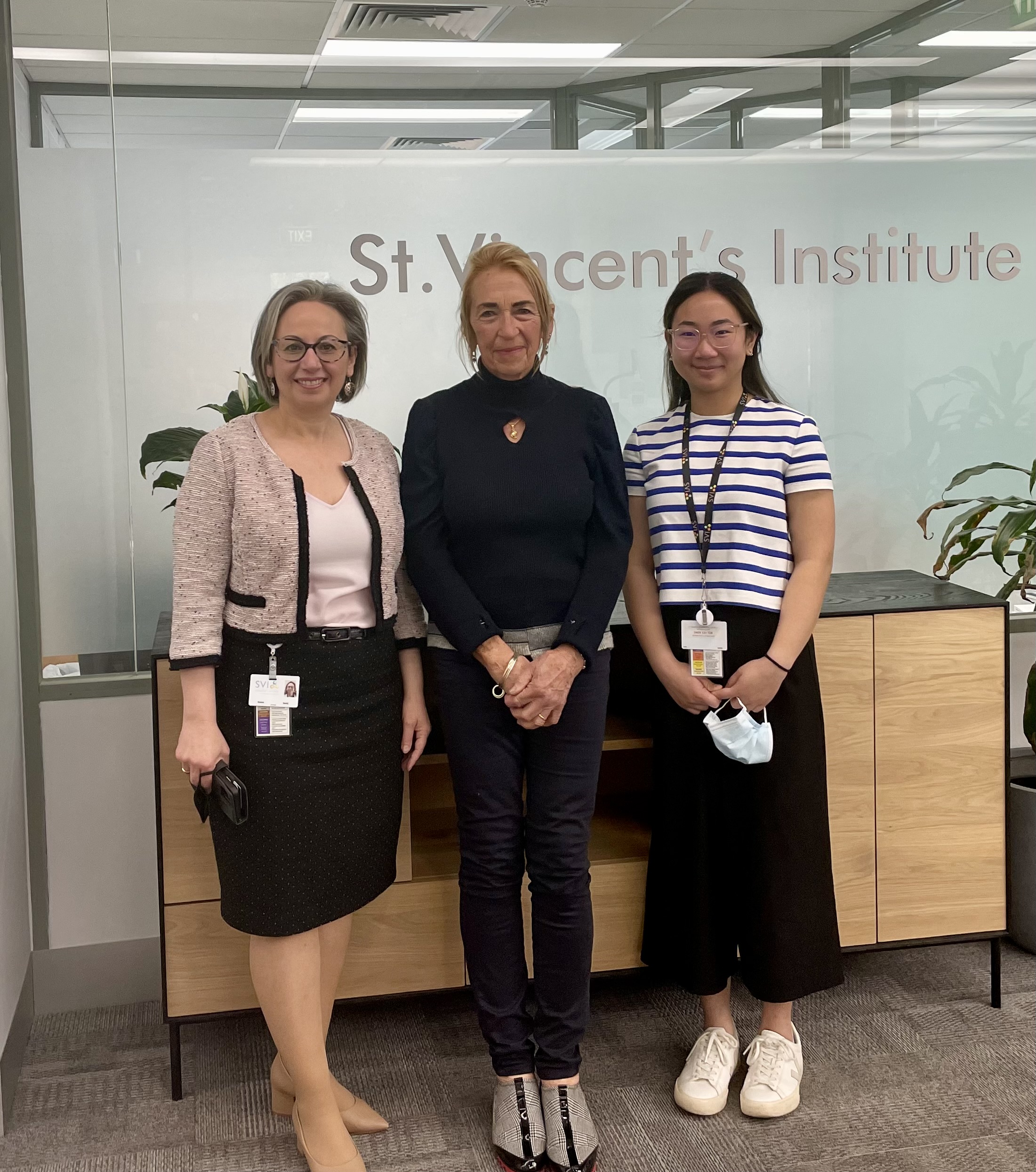Posted 15 January 2024

In late 2023, Associate Professor Elaine Sanij and SVI’s Christine Martin Fellow, Dr Jian Kang, were awarded two grants by The Barrie Dalgleish Centre for Myeloma and Related Blood Cancers.
The Dalgleish Centre is a partnership of academic organisations, including Peter Mac, SVI, and St Vincent’s Hospital, formed thanks to a bequest left by psychologist Barrie Dalgleish. The Centre aims to focus the collective talent of cancer researchers across Melbourne on the blood cancer, multiple myeloma.
In multiple myeloma, immune cells in the bone marrow transform into cancerous cells that grow out of control, crowding out normal cells that help fight infection.
Elaine says that symptoms of multiple myeloma vary from person to person. In the early stages of disease, there are often no obvious ones.
“The disease isn’t thought to be hereditary and its causes are currently unknown,” she says.
It was almost by sheer luck that Karen Wilde was given an accurate diagnosis for a pain in her leg that just wouldn’t go away.
“I thought I had injured myself but the pain lingered a bit too long so I went to see a GP,” said Karen.
“My doctor suspected it was something a bit more serious than a strained muscle because she had recently diagnosed someone else with multiple myeloma.”
“As a physiotherapist, I had always been conscious of staying very fit and healthy. So, when my doctor said that if someone like me could have multiple myeloma, then anyone could, it struck a chord.”
Karen’s refusal to allow the disease to define her and interest in finding solutions have led her to become involved in clinical trials, raise funds for multiple myeloma research and to forge a connection with Elaine at SVI.
“Understanding the problems of multiple myeloma from the perspective of someone who has first-hand experience really helps us to shape our research program. I have been blown away by Karen’s optimistic nature and drive to make a difference,” says Elaine.
Elaine and Jian are working to understand how multiple myeloma cells drive the progression of the disease and find ways to evade treatment.
“We are doing this using state-of-the-art technologies that allow us to compare myeloma cells that are sensitive to treatments to ones that have developed resistance. This will help us understand the difference between the two. We are also looking at genes associated with resistance to therapy.”
Australia has one of the highest rates of multiple myeloma in the world, with around 22,000 Australians currently living with the disease, and 1100 dying each year from its effects. The disease is generally considered incurable.
Neither Elaine nor Karen are willing to accept this.
“I reject that word, ‘incurable’,” says Karen.
“There is so much work being done by wonderful people like Elaine that I refuse to accept that we won’t find a cure.”
“It might not be found in my lifetime, but I don’t doubt that it will be found.”